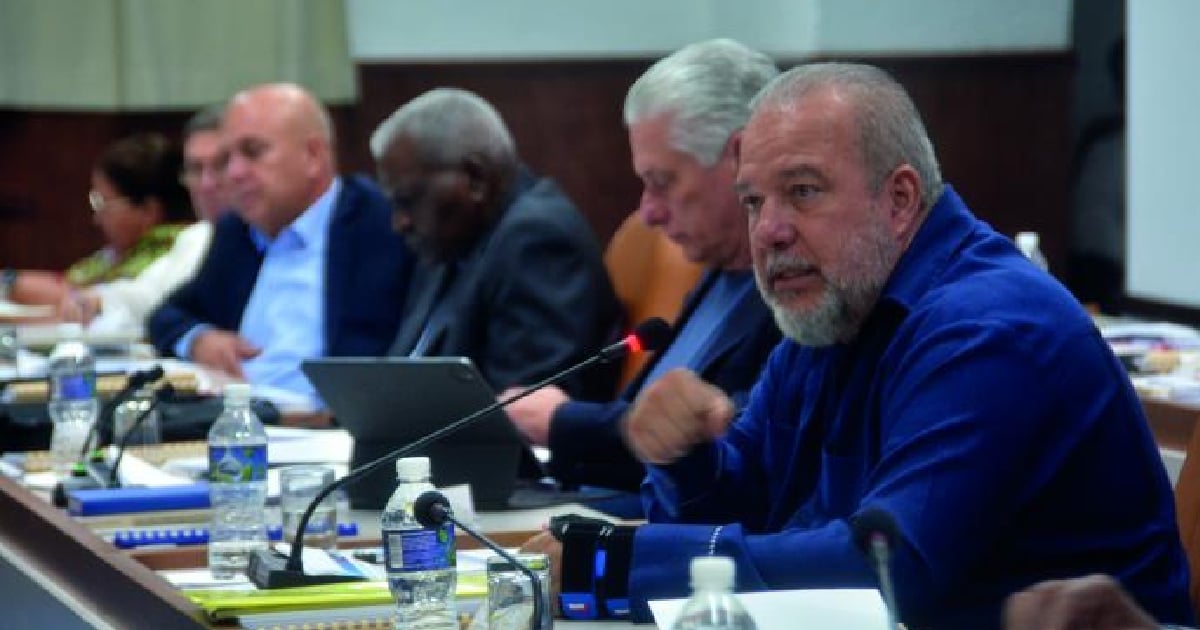One year after launching its plan to address economic distortions and revitalize the Cuban economy, the government admits that the anticipated outcomes have not been achieved. Cuban Prime Minister Manuel Marrero Cruz presented a report during the IX Plenary Session of the Central Committee of the Communist Party of Cuba (PCC), acknowledging the regime's dissatisfaction with the lack of significant progress in economic recovery, "despite the numerous measures adopted."
During his address, Marrero Cruz conveyed that although some economic distortions were identified and contained, the measures taken have been insufficient to produce the necessary results in crucial areas such as macroeconomic stabilization, reducing the fiscal deficit, and boosting national production.
The prime minister admitted that, broadly speaking, the Cuban economy continues to face severe challenges, intensified by the global financial crisis and the restrictive measures enforced by the U.S. embargo. He highlighted that although actions have been taken in price policy, subsidy reduction, and fiscal control, these implemented strategies have had only a limited impact. "We are dissatisfied because progress has not been made with the necessary urgency, especially in areas most demanded by the population," Marrero Cruz stated.
The report emphasized that in 2024, the country has failed to advance swiftly in areas like fiscal policy, national production, and the development of the socialist state enterprise. The scarcity of supplies, fuel, and energy has been a hurdle for production, while the sugarcane harvest, crucial for the economy, has been particularly disappointing.
Despite this bleak outlook, the government once again blamed the U.S. "economic blockade," foreign sanctions, and the effects of globalization for the nation's economic turmoil, particularly concerning the availability of financial and energy resources.
Among the measures the government proposes for the coming year are the need to strengthen national production, expand the offerings of state goods and services, and continue efforts to modernize the Cuban business system. Furthermore, the importance of improving economic and social management in municipalities and adopting more effective policies to reduce social inequalities and protect the most vulnerable individuals was mentioned—yet these measures have not solved the problem over the years.
The acknowledgment of the economic plan's failure occurs amidst growing social discontent, as Cubans continue to face shortages of basic goods, high inflation, and a lack of effective governmental responses. The scarcity of food and medicine, lack of energy, and difficulties accessing essential goods remain some of the population's greatest concerns.
Cuban Economic Challenges and Government Measures
What are the main challenges facing the Cuban economy?
The Cuban economy is struggling with macroeconomic instability, a significant fiscal deficit, and low national production. Added to these are external factors such as the global financial crisis and the U.S. embargo.
What measures has the Cuban government proposed to address the economic crisis?
The government plans to enhance national production, extend state goods and services, modernize the business system, and improve municipal economic and social management while addressing social inequalities.
How has the U.S. embargo impacted the Cuban economy?
The U.S. embargo has exacerbated economic difficulties in Cuba by limiting access to financial and energy resources, which the Cuban government cites as significant hurdles in their economic recovery efforts.
